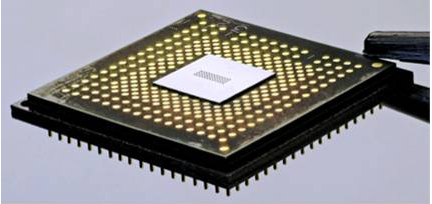Angry Birds Space will be released March 22 for PC, Mac, iOS and Android
From Technology Review RSS Feeds: Is Valve Making a Console?
How Valve’s “Steam Box” could be a game-changer
There comes a moment in every Saturday-morning cartoon where the villain, frustrated by the uselessness of his henchmen, says, “Must I do everything myself?!â€
From Technology Review RSS Feeds: The NSA Builds a Super-secure Android Device
The prototypes, code-named “Fishbowl”, make encrypted calls, and may be emulated by handset manufacturers.
The US National Security Agency has modified Google’s Android operating system to create smart phones that use powerful encryption to protect every call. The “Fishbowl†devices were announced today at the RSA security conference in San Francisco by Margaret Salter, the agency’s Technical Director, who said she hoped to encourage companies to adopt some of ideas used in the system.
From Technology Review RSS Feeds: A123 Predicts a Good Year, Providing Electric Cars Sell
Despite losing over $250 million last year, the company remains optimistic.
A123 Systems—the battery maker that’s central to the Obama administration’s efforts to establish an advanced battery industry in the United States and to greatly increase the number of battery-powered vehicles on the road—announced today that it lost $258 million in 2011, compared to $152 million in 2010. In spite of the loss, the company remains optimistic, predicting lower operating and capital costs and a 45 percent to 89 percent increase in revenue in 2012. But hitting those targets will depend on more consumers buying electric vehicles, and so far, demand has been lower than A123 expected.
From Discover Magazine: Defibrillators Malfunction at Shockingly High Rates | 80beats

Diagram for AED electrode placement.
Touted as life-saving devices, some 1.5 million automated external defibrillators (AEDs) are around the US. AEDs are designed to be used by anyone, regardless of training, to jumpstart the heart in a case of sudden cardiac arrest. And in this life-or-death situation, a surprisingly number of the devices fail.
Between 2005 and 2009, there were 28,000 reports of AED malfunction in the US, representing 1 out of 50 devices in the country. Mark Harris at IEEE Spectrum investigates the cause of these failures. Surprisingly basic engineering errors were responsible for some of the malfunctions, such as parts that are just too imprecise for a matter of life or death:
One AED, the brand name of which the FDA would not disclose, was found to occasionally misdiagnose the heart’s electrical rhythm. It delivered some shocks that weren’t needed and failed to deliver others that were. The culprit was a resistor that could vary in resistance by up to 10 percent of its stated value. “When our engineer looked at this design, it was an instant ‘uh‑oh,’ †says [Al Taylor of the FDA].
How could regulations on medical devices be so lax? …
from Discover Magazine
From Ars Technica: Apple in antitrust crosshairs over e-book pricing
The Department of Justice has plans to sue Apple for allegedly colluding to fix the prices of e-books, the Wall Street Journal reported Thursday.
Until fairly recently, publishers sold books to retailers for around half the suggested cover price, and then retailers were free to set their own prices. In recent years, Apple has turned its e-books business in the iBookstore over to an “agency model,” where publishers decide how much the book will sell for at a given retailer, but must take into account the fact that Apple gets a 30 percent cut of each sale. On top of that, Apple stipulated that the publishers could not sell their e-books for lower prices anywhere else.
According to quotes pulled from Steve Jobs by Walter Isaacson, Jobs said that publishers then took the agency model to other e-book retailers and told the retailers they had to agree to the minimum retail price set by Apple’s pricing strictures, preventing other e-book sellers like Amazon from undercutting the competition. The five publishers under scrutiny for working with Apple in this way include Simon and Schuster, Hachette Book Group, the Penguin Group, Macmillan, and HarperCollins.
The DoJ believes these actions constitute a violation of antitrust law, and are attempting to settle the case with the relevant companies. If a settlement is not reached, according to the WSJ, the DoJ will sue Apple and the five publishers.
Read the comments on this post
from Ars Technica
From Ars Technica: Holey chip! IBM drills holes into optical chip for terabit-per-second speed
IBM researchers have built a prototype optical chip that can transfer a terabit of data per second, using an innovative design requiring 48 tiny holes drilled into a standard CMOS chip, facilitating the movement of light. Much faster and more power-efficient than today’s optics, the so-called “Holey Optochip” technology could enhance the power of supercomputers.
Optical chips, which move data with light instead of electrons, are commonly used for interconnects in today’s supercomputers and can be found in IBM systems such as Power 775 and Blue Gene. Optical technology is favored over electrical for transmitting high-bandwidth data over longer distances, which is why it’s used for telecommunications networks, said IBM Optical Links Group manager Clint Schow.
from Ars Technica



